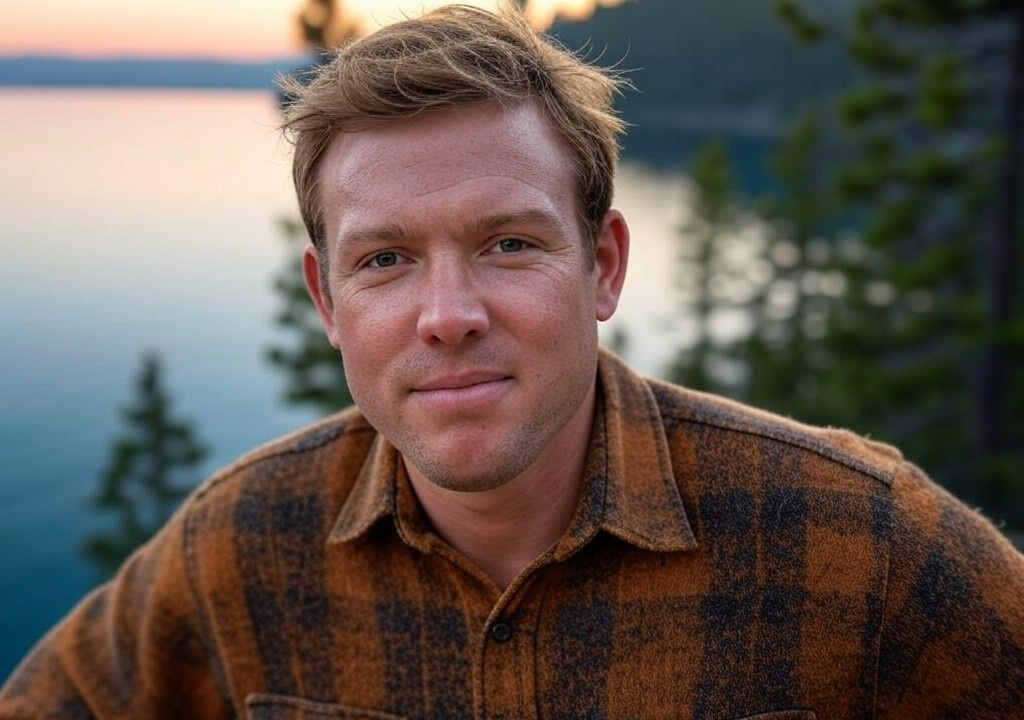“What’s in a name?” Shakespeare might’ve been pondering love, star-crossed fate, or poetic flair when he posed that question, but let’s get real: names are personal, powerful, and sometimes, downright complicated. Whether you’re scribbling one into a guestbook at a wedding or whispering another in a moment of romantic vulnerability, your name is your first identity and possibly your most enduring one. And yet, how much do you really think about it, aside from clarifying the spelling at Starbucks?
My name is Trent Donovan, but it might as well have been Timber Wolf Donovan, according to my dad, who lobbied hard for it. (Yes, really. Timber Wolf. I’d have been trending for the wrong reasons in kindergarten.) Growing up, my corner of Lake Tahoe was a playground of pristine trails, clear waters, and snow-draped pines, but names were a currency of character there. There were the Brads and Beckys who came up skiing from the city. The Jakes, Jessicas, and Jennifers from neighboring Nevada towns dividing their allegiance between Vegas flash and Tahoe chill. And then there was me: Trent—not Timber Wolf—son of lodge-owning parents who once claimed middle names should only be used for yelling at your kids or christening boats.
Some days, though, I do wonder: What would being “Timber” have changed? Would I have been bolder? More daring, a true outdoorsman with Instagram photos of me battling Class IV rapids and a heroic jawline to boot? Maybe. (Probably not.) Still, names hold sway over how we see ourselves, the expectations we shoulder, and the stories we try to tell the world. If you’ve ever wondered whether your name shaped who you became—or if you still want it to—you’re not alone. Stick with me, and we’ll unravel some knots together.
How Your Name Shapes First Impressions
Let’s start with the obvious truth: a name is more than a sound. It’s an opening argument. Whether you’re filling out a dating profile or swapping introductions at a winery, your name gives people a starting point for their assumptions.
A name like “Trent” opens plenty of doors, mostly the kind leading to flannel-clad baristas complimenting its “crunchy sincerity.” But there’s a bit of a catch: as approachable as it feels, it sometimes boxes me into that eternal outdoorsy role. You know, the guy you ask for trail mix recipes or snowshoe advice. Fine by me—I do have strong opinions on optimal layering—but it’s made me think about how attached we get to the labels tied to our names. Would Timber Wolf have invited a different kind of assumption altogether? That of a guy you don’t leave alone with artisanal jerky? The unanswerable, I suppose.
Here’s a truth we all know but rarely admit: names aren’t chosen in a vacuum. They’re cultural timestamps. Consider the rise of “Madison” in the ‘90s (thanks, Splash), hipster Beths reclaiming the ‘80s, or the legion of Aidens dominating school roll calls today. Your name carries trends, family history, and identity signals—like a tattoo you wear but never picked out yourself. Whether you lean into that signal or try to rewrite it is up to you.
Owning Your Origin Story
I’ll level with you—there’s a strength in a good story about your name that sticks with people. My favorite icebreaker? Telling folks I narrowly avoided Timber Wolf as a name thanks to my mom’s veto power. It’s funny, it’s weird, and it’s me. Everyone loves a story that helps them connect dots about you, and your name is a goldmine for that.
If your parents played it safe with “Sarah” or “John,” that’s okay too. (Hey, Sarah, your name is eternally classic. John, don’t you dare sell short the rugged cowboy vibes.) But dig a little when you can. Ask family members what your name meant to them—literally or figuratively. Did they name you after a musician, a book, or the neighbor everyone weirdly liked? Did uncles brawl over spelling choices at a Fourth of July BBQ? The answers might illuminate how—or if—your name was supposed to pull you in one direction or another.
Give yourself permission to embrace the answers, too. Name pride is underrated. Besides, the one sure thing about embracing your name? You claim control over how it defines you.
Nicknames: Blessing or Burden?
Ah, nicknames—the lovable rogues of the naming world. They can be endearing, annoying, or outright bizarre. For proof, I present my high school nickname: Tadpole. Yes, Tadpole. Apparently, being the youngest in a crew of snowboarding friends meant enduring animal-themed nicknames. While I didn’t love it, it somehow stuck.
Nicknames can sometimes amplify or subvert the perception of your “official” name. A nickname like “Sunny” might inject warmth into a personality the world always assumed was reserved. Conversely, “Tank,” whether bestowed ironically or not, leaves a certain impression. The key here? Decide if you’re okay with the world calling an audible on your name narrative.
If you like your nickname, own it. If you don’t, gently correct (“It’s Anna, not Annie, thanks!”), or do what I did in college and radically rebrand. New semester? New people? Goodbye Tadpole, hello Trent 2.0—the version with zero amphibious baggage.
Changing the Script
Speaking of rebranding: changing your name isn’t just for Hollywood stars and royalty anymore. Whether it’s an outdated name that doesn’t fit anymore or one tied to a family or cultural legacy you’re ready to release, swapping names can be liberating.
A good college friend of mine—born Michael, now Atlas—made the switch after a summer of solo backpacking. His reasoning? He wanted a name with adventurous heft, and Michael felt too polite. Did I raise an eyebrow when he told me over beers? Sure. Am I now secretly jealous at how fiercely he’s grown into Atlas? Definitely. (Also, “Atlas” gets some killer reactions at parties.)
But even if an official name change isn’t in your cards, subtle shifts—like adopting a preferred nickname or initials—can have the same effect. Names are tools, not traps.
Walking the Line Between Respect and Reinvention
Ultimately, owning your name is about balance: respecting the heritage it carries while knowing you can carve your own meanings from it. You’re allowed to live beyond the version assumed by your first name. You’re allowed to embrace it, adapt it, reimagine it—or all of the above.
Think of some of the most magnetic people in your orbit. I’d bet good money they don’t rely on their name alone for impact. They’ve cultivated a reputation, a way of moving through the world that makes their name matter more.
The Final Word: Write, Rewrite, Repeat
Turns out, Timber Wolf Donovan might’ve been the worst possible name for me—or the most legendary. I’ll never know. What I do know is that Trent is the name I’ve grown into, worn like my favorite flannel, and built a life I love within its frame. It doesn’t box me in any more than I allow it to.
Your job, should you choose to accept it? Find whatever parts of your name resonate, shake loose the ones that feel sticky, and tell a story you love around it. Whether you were named after a grandmother, a soap opera heartthrob, or a hurricane that made everyone slightly nervous, lean into it—or rewrite it entirely. Identity’s a wild, sprawling thing, and a name is just one thread in the weave.
It’s your life. Make sure your name, however you shape it, is playing for the winning team.




















